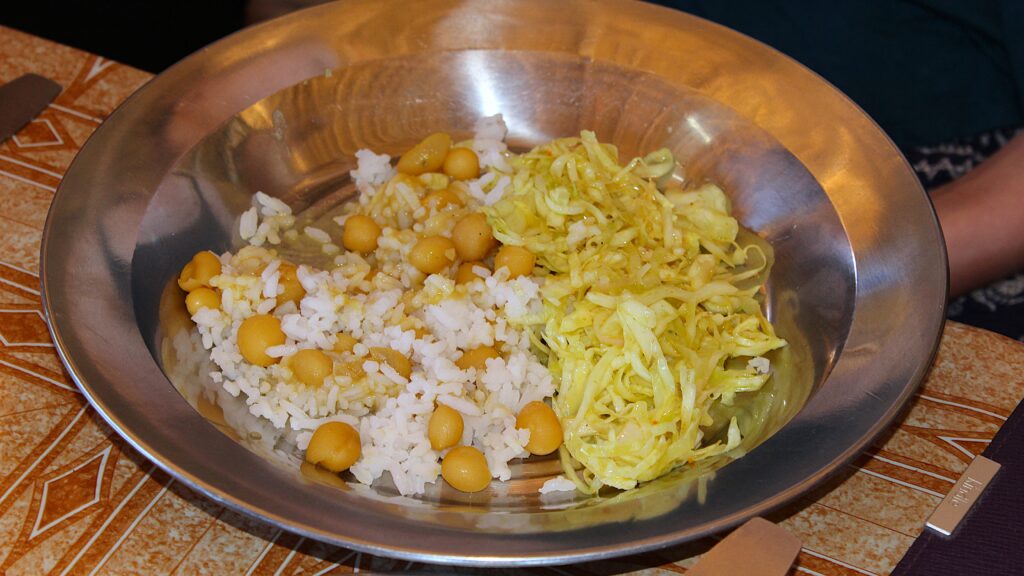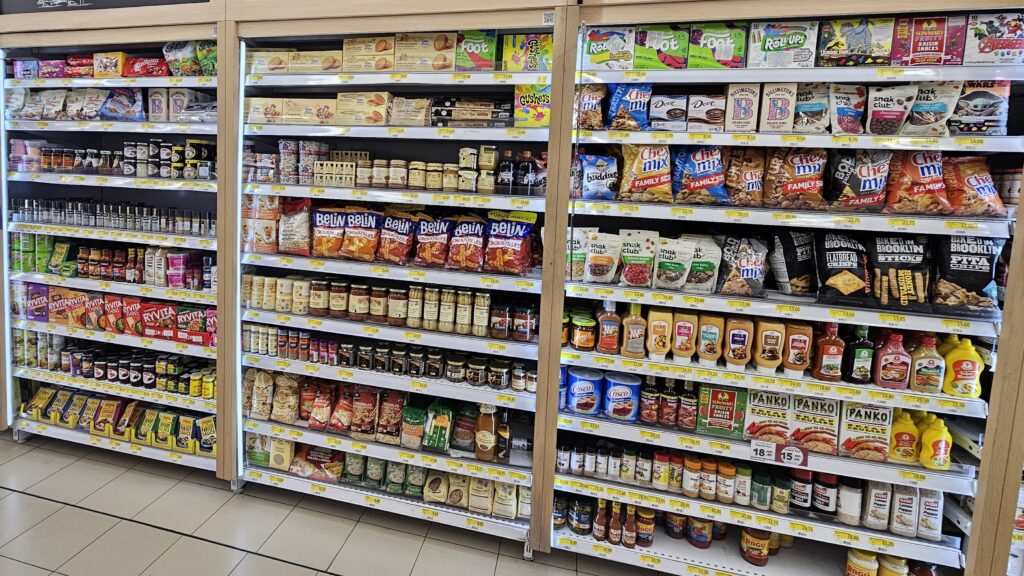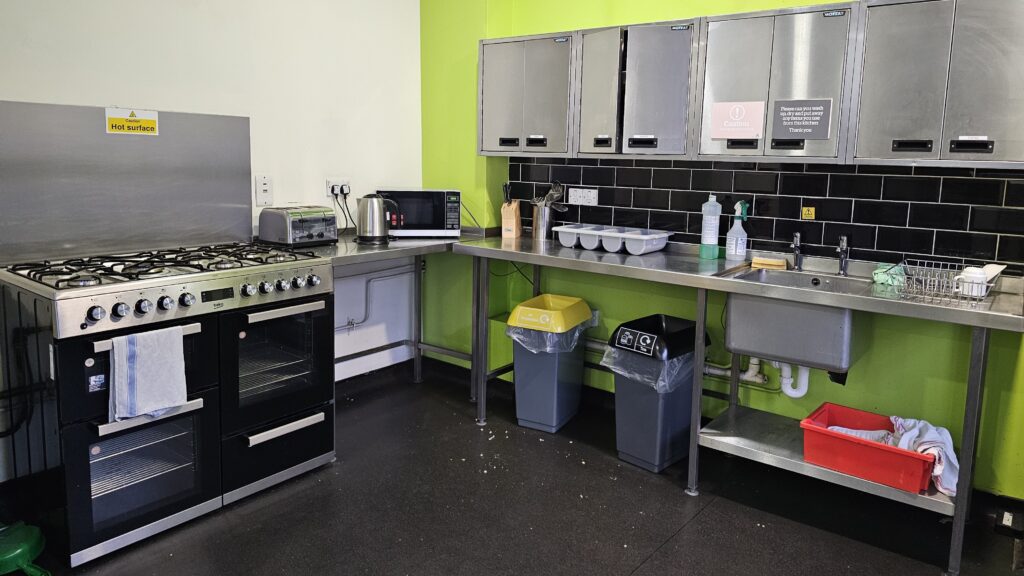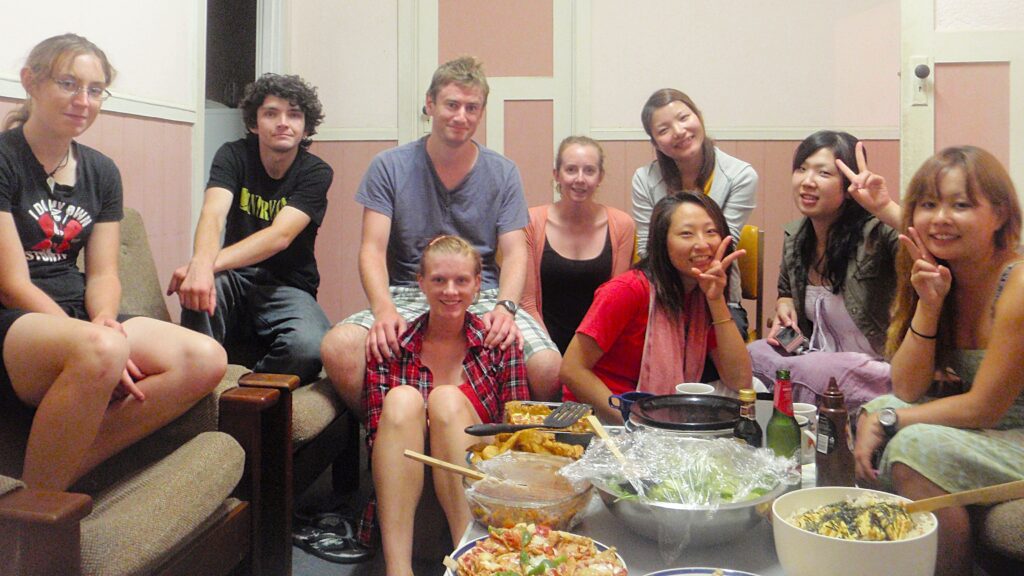Food is one of the biggest expenses for a backpacker, after flights and accommodation. This is something to factor in if you are sticking to a tight budget.
The great thing about travelling to new countries is getting to explore the local cuisines, so it is only natural that you may be tempted to constantly eat out. Although trying the local food is a must when travelling, eating out every day can quickly drain your savings. One of the easiest ways to keep food costs low is to make meals for yourself. However, cooking while travelling can be tricky due to the constant moving around, lack of facilities and sharing space with other people. Luckily, we have some useful tips to make cooking easier while travelling.
1. Keep it simple
Most budget accommodation will have fairly basic cooking facilities so trying to cook a complex meal will be quite difficult. For example, in the UK we often have a roast dinner on a Sunday which involves a large joint of meat, roast potatoes, multiple vegetables and gravy. It involves several hours of cooking and lots of pots and pans. Cooking something like this at home is doable but anything this complex or time consuming is probably not possible on the road. Even if it is, you will annoy a lot of other people if you are taking over a shared kitchen. Keep things quick and simple. Think one pot meals, pasta dishes, sandwiches or a pizza you can throw in the oven. Bonus, these types of dishes will also mean less washing up.

2. Take dry goods
Stocking up on staple dry goods while travelling means that you don’t have to worry about a fridge, and you know that you will always have something to eat even if you don’t feel like food shopping. Here’s some ideas of great dried food items to always carry with you.
- Pasta/rice/noodles
- Tins e.g. beans, sweetcorn, tuna, tinned fruit
- Condiments
- Herbs and spices
- Tea/coffee
- Potatoes and other root vegetables
- Bread
- Crisps and snacks
- Cooking oil

3. Consider the cooking facilities
Different types of accommodation will have different cooking facilities. Think about where you are going to be staying. Are you camping? Have you got a campervan? Will you be staying in a hostel? Depending on where you are staying will depend on how easy it is to cook and prepare meals.
Hostels
Hostels are one of the most popular budget accommodation options while backpacking. A large proportion of hostels will have a shared kitchen where you will be able to make and store your food. The facilities can vary quite a lot, with some having multiple hobs and fridges, to others lacking basics such as an oven or a freezer. Usually all the basic utensils and cookware will be provided to be able to cook a meal, but you will often find that a lot of it is dirty in the sink where people just haven’t washed up. One thing I frequently noticed missing from a hostel was a tin opener, so it might be worth carrying one with you. Food can be stored in the hostel fridges, but it is essential to label your food to prevent it from being taken or thrown away.
Want to know more about what to expect when staying in a hostel then check out our blog post HERE

Apartments
Renting an apartment or house can offer the easiest cooking options while travelling as you get to cook in a fully functional kitchen as you would at home. If you are in a house share, then you may need to share the facilities with other people, but it will definitely be a lot less people than if you were staying in a hostel. This means that you can spend more time preparing and cooking food and making more elaborate meals if that’s your kind of thing.
Camping
Cooking while camping take some getting used to. Cooking is done on a tiny stove outside in the elements. There is sometimes no running water either, meaning that you have to take large container of water with you. If you are camping occasionally, or for just a few nights, then you can get away with a small stove for cooking basics like porridge or instant noodles. Alternatively, you could eat out if you are only camping for a few nights.
Long-term camping requires better cooking equipment and a lot more items. You may want to purchase a multi-ring stove, several pots and pans and plates, bowls, mugs and cutlery. Don’t forget about washing up as well. You will need washing up liquid, a bowl, sponges and a tea towel as a minimum. This can be a lot to carry, so think about whether you will have access to a car or not. The weather can also make cooking while camping a challenge. Torrential rain and strong winds can easily blow out the flame on the stove, so do you have a back-up plan if this happens?

Campervans
Campervans are a bit easier to cook in compared to camping as everything is contained in one vehicle. The size of a campervan can dictate what equipment it might have. A tiny van might only have stove similar to what you would use while camping and it might also be outside the vehicle. Larger campervans will have a better set up with a built-in cooker and sink with running water. They will also have a fridge and possibly a freezer built-in. Although campervans often come with lots of amenities, it is still a cramped space to cook in and can take a bit of getting used to.
Hotels
Hotels can be difficult to cook and even eat food in. Most budget hotels just contain a bed and bathroom and perhaps a desk and kettle if you are lucky. The trick with these is to firstly find out if they have a kettle or not. If they do, then there can be lots of things that you can make. I personally like to take instant porridge pots with me to hotels which just need hot water added to them. This saves money on breakfast each morning. You can also eat other things like cup-a-soup or instant noodles which only require hot water. This is not going to be good for your health long-term, but it can save you money if you are just staying in a hotel for a couple of nights. If you have a food bag and cooking utensils with you then you can also make things like sandwiches.
The other option in a hotel is to eat out or get a take-away. Just remember that if you get a takeaway, you will often only have the bed to eat on so avoid anything messy like chicken wings, curry or soup. Also, hotels usually only have a teaspoon in the room for coffee, so make sure you have cutlery before ordering food to your room.
4. Think about days on the road
There will be days when you are just on the road and won’t have access to a kitchen. On these days you need to consider two things. Firstly, how are you going to keep your food fresh while travelling and secondly how are you going to feed yourself on these days. The easiest thing is to eat out on these travelling days but that can eat into your budget. The alternative to eating out is to prepare food before you leave your accommodation. Think making sandwiches in the morning or cooking pasta the night before. If you don’t have access to a kitchen for a few days, then pre-preparing food can be more tricky as it might have spoilt by then. This is where having a good stock of dry food can help. For example, if you have bread and tuna in your bag, then you could make a tuna sandwich on the go.
For days on the road, it is a good idea to always carry basic utensils. A simple cutlery set and a plate, bowl and Tupperware container is a good start. Extras such as a tin opener, flexible chopping board and sharp knife can also make life easier when preparing food on the go.
Try and ensure that the majority of food in your bag on travel days is dry goods, so that you don’t have to worry about keeping anything cold. However, this is not always possible and you may have other food staples such as butter and cheese, which require a fridge. If you have items which need to be kept below a certain temperature, then you should invest in a flexible cool bag, one which can be squeezed into small spaces on a bus. On top of this, you should also carry ice blocks (which you can freeze at your accommodation before you leave) or buy ice along the way. I would try and avoid high risk fridge food such as fish and meat as you don’t want to risk getting sick.

5. Batch cook
Some days you won’t feel like cooking. You might have been out exploring all day or working and are just tired. This is where having meals pre-prepared is a good idea. If you have space to store food, then you can cook up a big curry or pasta bake and keep the leftovers in the fridge or freezer for future consumption. Just make sure you are not taking up the whole fridge with your leftovers if you are in shared accommodation. Tupperware containers or sandwich bags are a useful thing to have for storing any leftovers.
6. Share food
In hostels and other shared accommodation there will be dozens of people cooking every day. Get friendly with them and they may share some food with you. Likewise, if you have cooked too much, you can reciprocate and offer them some of your leftovers. Grocery shopping and cooking is usually cheaper if it’s done in bulk so by teaming up with other people you can reduce the cost of a meal. Quite often hostels will also have a ‘free food’ section as well, where people have left food items they don’t want. This can be things like condiments, pasta, and cooking oil. As long as it is a long-lasting item and is in date, then you can help yourself to these things. I would recommend steering clear of anything perishable like milk or meat as you don’t know how long it has been hanging around.

7. Eat out
Eating out once in a while can make a nice change to cooking. While eating out is more expensive than cooking for yourself, there are a few ways you can keep costs to a minimum.
- Choose a cheap country – Certain countries are going to be cheaper than others. By travelling to a cheaper country you can afford to eat out more often.
- Eat away from the main tourist areas – Prices are often highly inflated around major tourist destinations. Walk away from these areas to find restaurants with more reasonable prices.
- Buy food from a supermarket – If you are out and about and want to grab some food to go, rather than buying a sandwich from a café, pop to the local supermarket instead. Supermarkets are designed for locals to buy their weekly food so will be considerably cheaper than any food in a restaurant.
- Eat street food – Markets and street food carts are another place where you can get reasonably priced food. This is because there are fewer overhead costs and less staff and equipment which they have to pay for. This keeps costs down. Just be wary of street food in certain less developed countries especially if there is meat involved. You don’t want to risk food poisoning. (Read more about how to avoid getting sick while travelling HERE)
- Choose a budget chain – Every country will have their own cheap chain restaurants. Whether that is fast food or a sit down meal, you can usually find somewhere that offers basic food for a low price. If you are unsure, just ask a local or guide where to find a reasonably priced meal.
- Meal deals – Some restaurants and cafes will have deals on food and drink. This might be a lunchtime set menu or a happy hour. If you are aware of any offers in the local area, then you can plan your mealtime to fit in with these deals.
Want more budget travel tips? Read How to travel cheaply: 21 tips for travelling on a budget.


